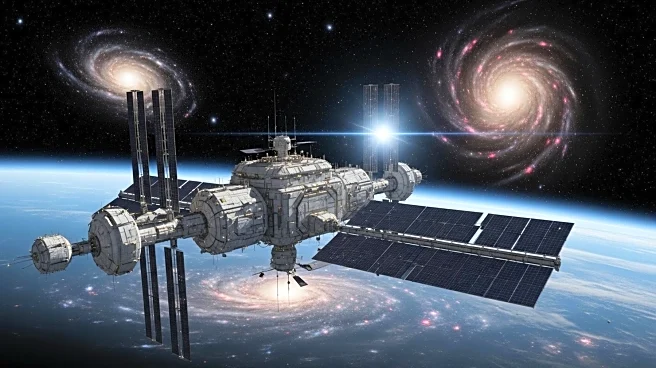What is the story about?
What's Happening?
NASA has announced plans to end its operations at the International Space Station (ISS) by 2030. Since its inception in 1998, the ISS has been a hub for significant research across various scientific domains, including materials science, biotechnology, and Earth science. Over 4,000 experiments have been conducted, resulting in more than 4,400 research publications. These studies have advanced understanding in areas such as cancer drug crystallization and DNA sequencing in space. The ISS has been a symbol of international cooperation, with continuous human presence in low-Earth orbit since November 2000. As the ISS approaches its decommissioning, NASA is exploring alternatives to maintain a presence in low-Earth orbit, including the development of privately owned, commercially operated space stations.
Why It's Important?
The decision to retire the ISS marks a significant shift in space exploration and research. The ISS has been pivotal in advancing scientific knowledge and fostering international collaboration. Its retirement could impact ongoing research and the future of international partnerships in space. The move towards commercial space stations represents a new era in space exploration, potentially reducing costs and increasing innovation through private sector involvement. This transition could also influence global space dynamics, as other nations, like China with its Tiangong space station, continue to expand their space capabilities.
What's Next?
NASA is investing in the development of commercial space stations to ensure continued research in low-Earth orbit. The agency has allocated over $400 million to stimulate this development, with plans to launch these stations before the ISS is decommissioned. NASA's approach includes partnerships with companies like SpaceX and Boeing for crew and cargo transport. The success of these commercial stations will be crucial in maintaining the U.S.'s leadership in space exploration and research.
















